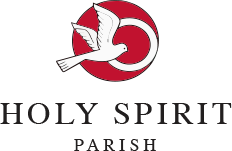
April 19, 2020 – Truth
“Unless I see the mark of the nails in his hands and put my finger into the nail marks and put my hand into his side, I will not believe.”
Thomas earned the name of “doubting Thomas” because of this famous line. But if we are honest, most all of us would have said the same thing. The reality is that we want to believe but we need to know the truth by personal experience. We rarely “take others’ word for it.” If, however, we trust someone deeply and they have proved themselves to be trustworthy, we will trust their words and take it as truth. But today it has become difficult to know who to trust and where is the truth coming from. I recently read an article by Rob Wijnberg in Corresponent, speaking about the different types of truth and I thought it was very helpful.
He says that there have been historically three types of truth. “First is metaphysical truth, characterized by the idea that truth exists outside of earthly reality, and is therefore beyond human reach. It resides in what’s often called the realm of the transcendent and is accessed through revelation and faith. It cannot be known; it can only be believed –the basis of every world religion.
“Second is scientific truth, characterized by the idea that truth is very much within human reach and can be found through reason, perception and experiment. Modern science is based on this conception of truth. It is independent from how we, human beings, see the world –also known as ‘objectivity’. Yet at the same time, this type of truth is closer to humankind than the transcendent, in the sense that it is actually attainable. People can access it through knowledge: you don’t need to believe it, you can know it.
“Lastly, there is constructed truth,characterized by the idea that truth is not ‘out of reach,’ or even independent from human perception at all. On the contrary, we make truth ourselves. This school of thought does not regard truth as something transcendent or superhuman, nor as something objective or findable. Instead, truth is subjective and made by us. Or to put it more simply: it would not exist if we didn’t exist. The German philosopher Friedrich Nietzsche perhaps best summarized its essence when he wrote: ‘There are no facts, only interpretations.’”
Wijnberg goes on to say that all three types of truth have been present in all societies throughout history, although different types dominate in different eras.
For example, the pre-modern period in the west (up to the 16th century), metaphysical truth dominated. During the modern era, between the 16th and 20th centuries, scientific truth was the dominant narrative. And during what became known as post modernity, roughly from the 20th century onwards, the idea of constructed truth became increasingly accepted.
In this era of Shelter in Place I have heard from many of you that we need to get a better balance on how to come to the truth. Most all of you have started to watch less of the “constructed truth” of the TV and internet and are now demanding a little more scientific truth when it comes to the virus and a little more metaphysical truth when it comes to community and dealing with each other.
Consequently, I welcome this time of doubting and reflection if we can get to a balanced version of truth based on data from personal experience and metaphysical truth infused with the divine revelation. Hopefully we can all get to the statement of faith, “My Lord and my God.”
Fr. Brendan McGuire



 © 2021 Holy Spirit Parish
© 2021 Holy Spirit Parish